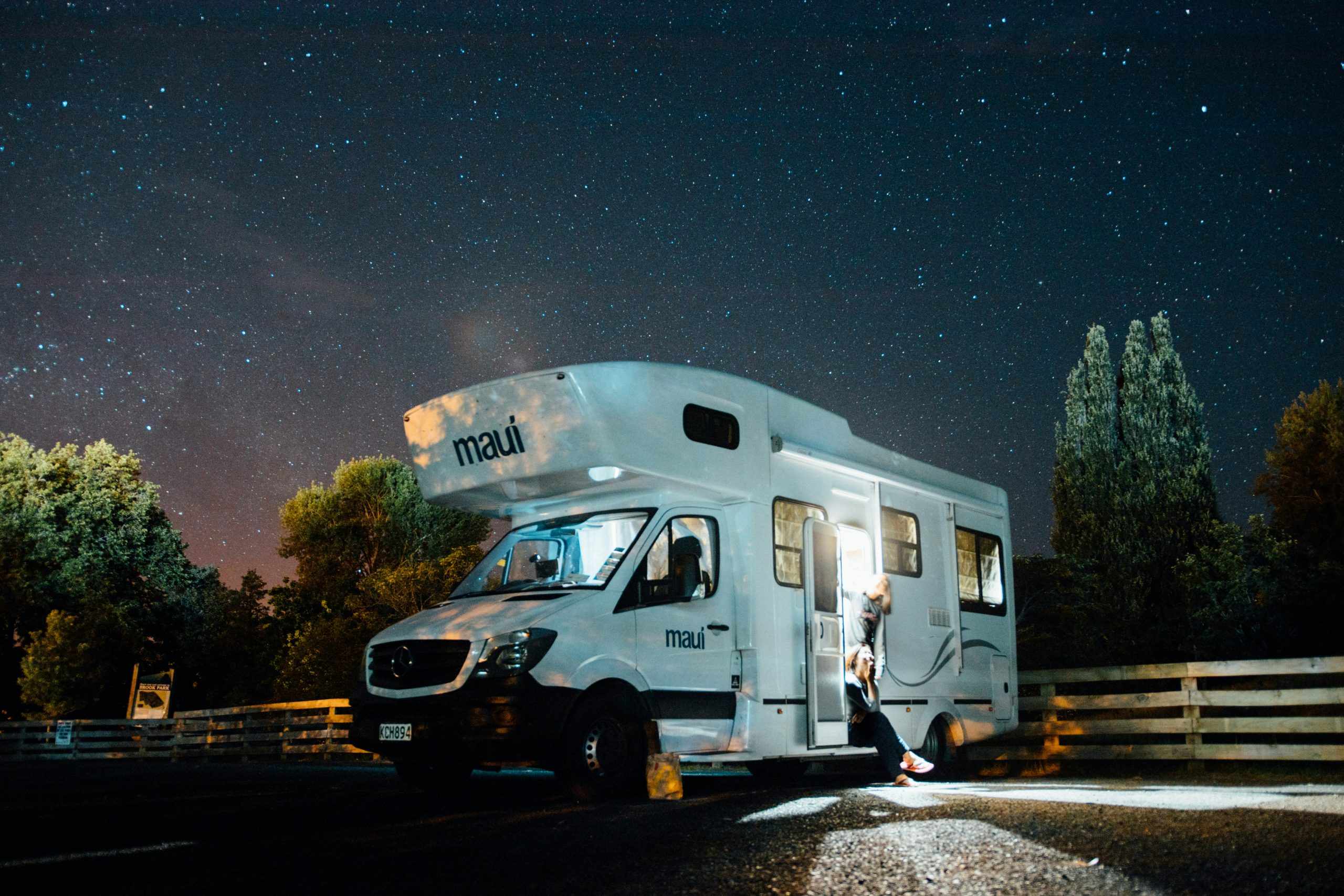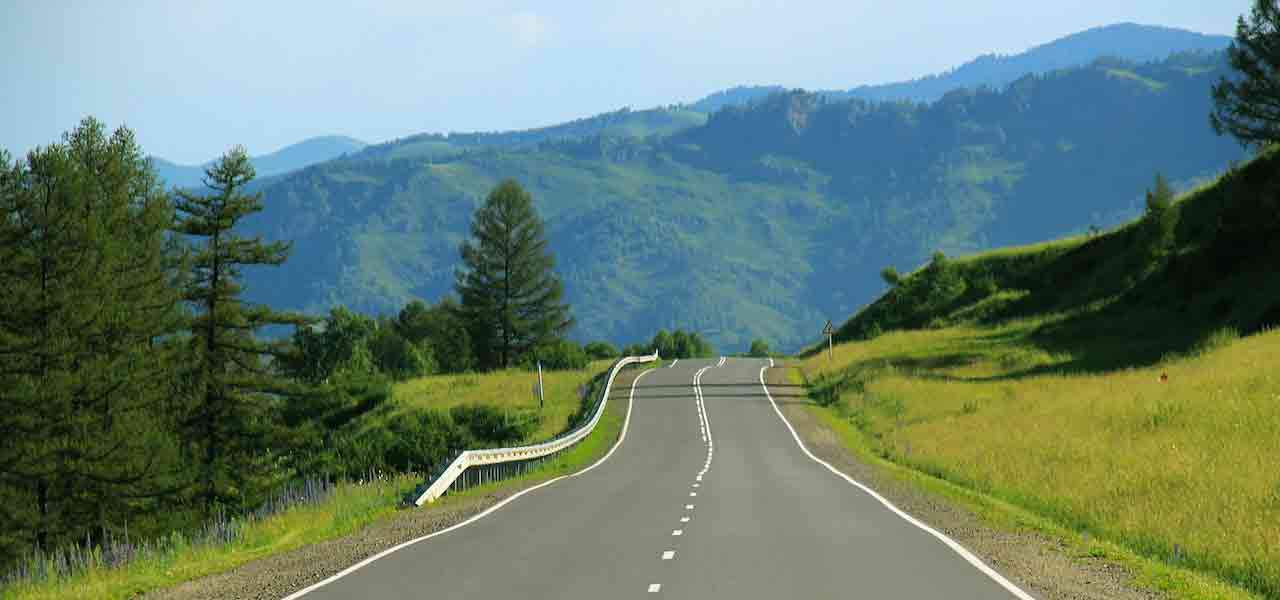Environmentalists will tell you that the key to go green and live a sustainable lifestyle is more about what you do, rather than what you own. And nothing proves that point quite like owning an RV or motorhome.
RVs and motorhomes have a reputation of being a traveling contradiction to conservation. On the one hand, nothing inspires you to preserve and protect nature quite like a classic cross-country road trip. On the other hand, hitting the road in a gas-guzzling, oversized rig seems to completely contradict living a low-impact lifestyle.
But what if we told you that taking to the open road in an RV or motorhome can still be an eco-friendly alternative to other methods of travel?
While it’s fair to wonder what kind of carbon footprint you’re leaving along the highway, you can easily counterbalance your RV’s carbon emissions by making a few simple adjustments to your adventure rig, travel plans, or your daily habits on the road.
To help you on your mission to go green, we’ve put together some helpful tips for sustainable living on the road.
Let’s dig into 4 ways to go green in your RV:
- Conserving water and electricity
- Keeping your RV running efficiently
- Reducing waste
- Buying sustainably
1. Conserve water and electricity
The fundamental rule for going green, even at home, is to conserve water and electricity. By preserving water and power, you not only protect limited natural resources, but you also reduce the amount of coal, crude oil, and fossil fuels released into the atmosphere.
What you might not realize, however, is that by simply choosing to spend your time in a 300 square-foot home on wheels, instead of a traditional 1,000-plus square foot home, Airbnb, or hotel, you’ve already cut your daily water and power usage, more or less, in half.

Water and electricity conservation tips
However, outside of consolidating square footage, there are a few more resource-saving strategies you can use to conserve water and electricity.
- Replace traditional light bulbs with LED lighting. LEDs use less energy, last longer than conventional light bulbs, and have the bonus of emitting less heat.
- Go solar. Installing a solar kit to power RV essentials, or using portable solar panels to charge small electronic devices significantly reduces the amount of energy you consume on the road. Solar-loving RVers will also tell you that going solar allows you to seek more remote camping locations and spend more time off the power grid.
- Replace standard faucets and shower heads with high-efficiency options. Specialized RV-specific efficiency faucets and shower heads self-pressurize to reduce excess water consumption.
- Don’t leave the water running. When showering, brushing your teeth, or doing dishes, turn off the faucet in between use to keep water usage to a minimum.
2. Keep your RV running efficiently
Routine RV maintenance does more than ensure your rig can get from point A to point B. It also helps it run at maximum efficiency, which improves your fuel economy.
There are four simple ways you can do this. If you have a trailer, these rules still apply to your tow vehicle.
RV maintenance tips
- Make sure your tires are properly pressurized, balanced, and aligned. If your tires are low on air, imbalanced, or misaligned, your engine is going to have to work harder to get you where you need to be.
- Change the oil when it’s due. Changing the oil keeps your engine running smoothly. Make sure to use the oil recommended by your vehicle or RV’s manufacturer.
- Change dirty air filters. Did you know that dirty or clogged filters can reduce your gas mileage by 10%? This is because engines need airflow for internal combustion. When this is impeded, fuel economy goes down.
- Get regular tune-ups. During a tune-up, a mechanic will look over various parts to ensure everything is in good working order. Tune-ups can prevent breakdowns, but they can also prevent issues that might keep your car from operating efficiently.
Reasons to properly maintain your RV form a list that is a mile long. If fuel economy doesn’t serve as enough motivation, consider factors like improved overall safety, higher resale value, and peace of mind as you travel down the road.

3. Reduce waste
You may be tempted to stock up on paper plates and plastic products when you hit the road, but if your goal is to go green, using reusable packaging and products does wonders for the environment.
Start by using reusable bags, dishware, silverware, and drinkware in lieu of disposable alternatives. Not only will this reduce overall waste, but it also does wonders for our global plastic problem.
When we generate excess waste, our planet pays the price. Every year, 8 million metric tons of plastic find a way to the ocean. 40 percent of that used only once before being discarded. Unfortunately, it can take up to 500 years for an average plastic water bottle to fully decompose—if it ever does. Only 30 percent of all waste is properly recycled, annually.
Once you’ve taken steps to minimize your daily waste, the next best thing you can do for the environment is recycle. The intricate rules of recycling often deter travelers from separating their waste. However, resources available online can help you understand the guidelines and the impact of waste management. Some recyclables may even surprise you!
4. Buy in bulk and shop local
We won’t get too far into the weeds on how locally sourced products differ from products that are trucked thousands of miles to a commercial grocery store. However, it’s worth noting that small, local businesses generally consume fewer natural resources and create less pollution.
By shopping locally and buying dry goods in bulk, you also minimize the use of disposable plastics, packaging, and product.
Next time you’re traveling, take a trip to a local grocery store, bakery, or farmers market. Local merchants will often encourage you to BOYC—bring your own container—so you can refill or stock up on goodies without purchasing one-and-done bags, boxes, or containers.
As a bonus, fresh produce and baked goods often taste better and are easier to store in small spaces.
If you aren’t sure what’s local, ask your campground host or front office. People who work at campgrounds and parks will be happy to point you to local eateries and attractions.
Go forth and go green
You don’t have to sacrifice comfort to conserve, and you certainly don’t have to forgo your home on wheels to go green. Making a few simple adjustments to your travel habits on the road should give you peace of mind that you’re doing your part to protect the planet.
And if you’re looking for more ways to go green, check out these sustainable outdoor brands.











